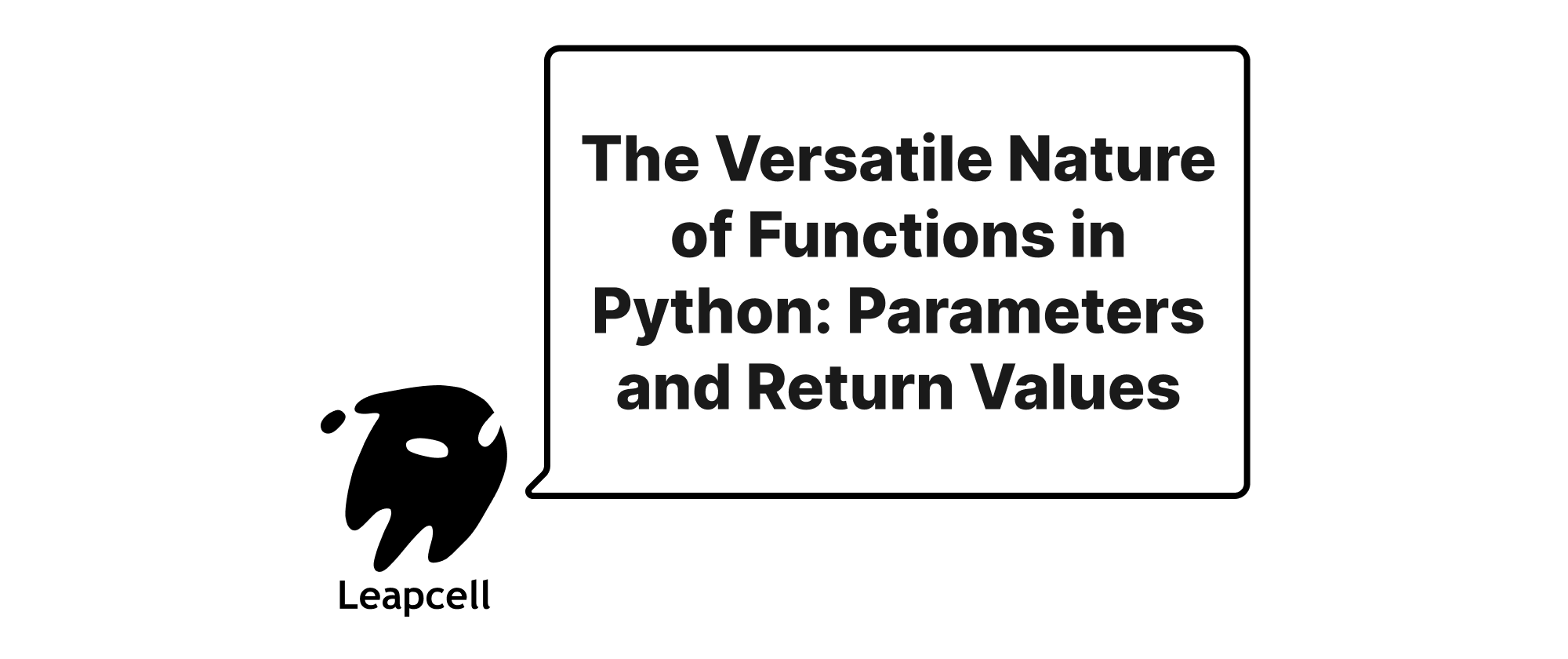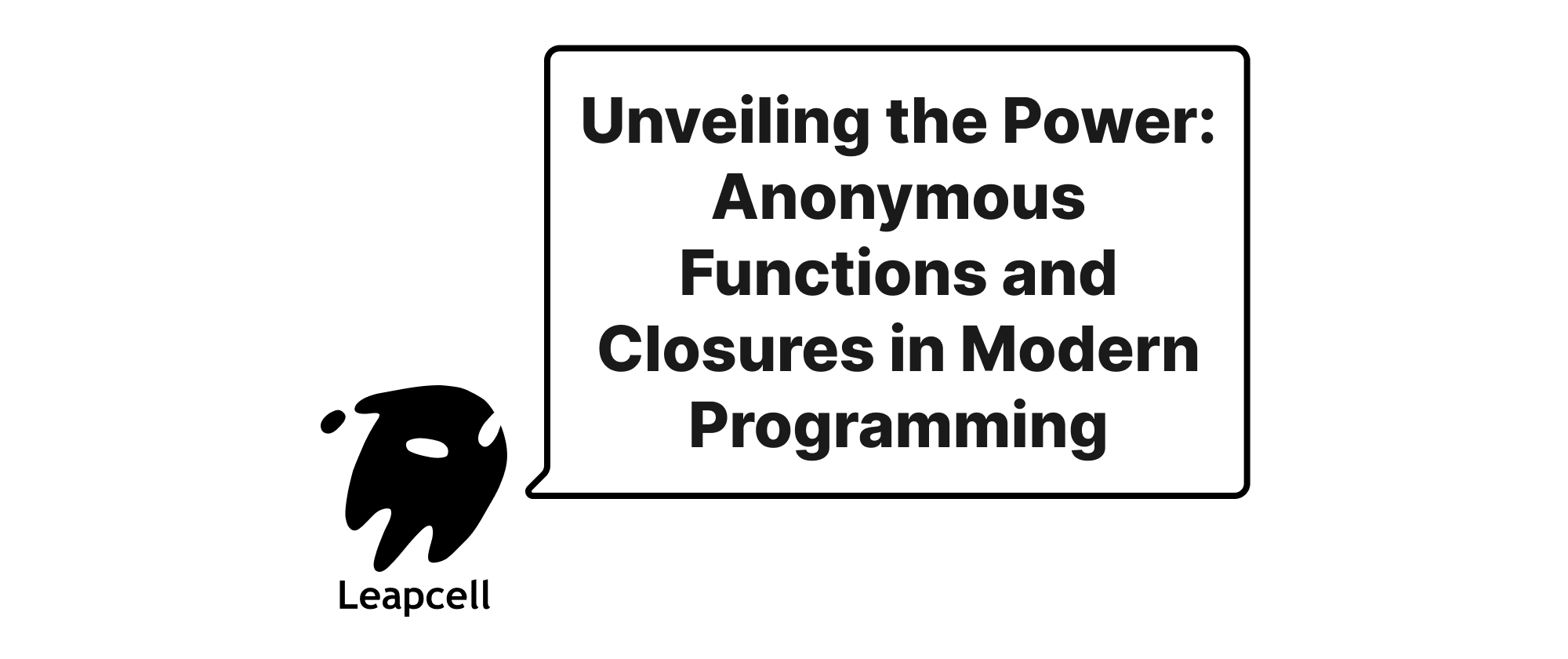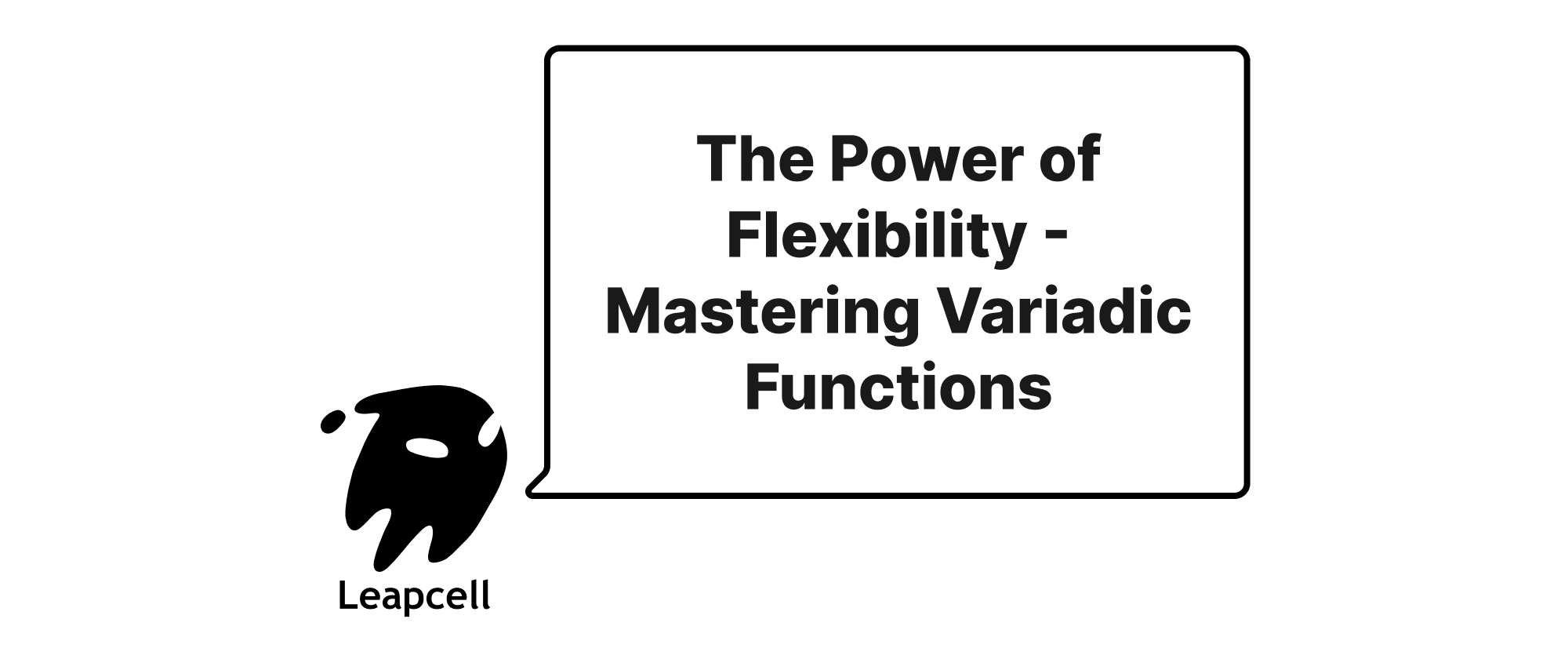Unleashing Flexibility: Functions as First-Class Citizens in Go
James Reed
Infrastructure Engineer · Leapcell

Go, a language celebrated for its simplicity and efficiency, offers a robust feature often embraced in dynamic languages: functions as first-class citizens. This means functions can be treated just like any other data type – assigned to variables, passed as arguments to other functions, and even returned as values from functions. This capability unlocks significant power and flexibility, enabling more modular, reusable, and idiomatic Go programming.
The Foundation: Function Types
Before diving into passing and returning functions, it's crucial to understand how Go defines a function's "type." A function's type is determined by its signature: the types of its parameters and the types of its return values.
Consider a simple function:
func add(a, b int) int { return a + b }
The type of add is func(int, int) int. This distinct type allows us to declare variables of this type, which can then hold references to functions.
package main import "fmt" func main() { // Declare a variable 'op' of type func(int, int) int var op func(int, int) int // Assign the 'add' function to 'op' op = add result := op(5, 3) fmt.Println("Result of op(5, 3):", result) // Output: Result of op(5, 3): 8 } func add(a, b int) int { return a + b }
This simple assignment already hints at the power: we can switch out the underlying function implementation at runtime.
Functions as Parameters: Enhancing Flexibility
Passing functions as parameters, often referred to as "callbacks" or "higher-order functions," is a cornerstone of functional programming and a common pattern in Go for injecting behavior. This allows a function to delegate some part of its logic to an external function provided by the caller.
A common use case is for creating generic functions that operate on data but require specific actions to be performed on each element.
package main import "fmt" // applyOperation takes a slice of integers and a function // It applies the operation function to each element in the slice func applyOperation(numbers []int, operation func(int) int) []int { results := make([]int, len(numbers)) for i, num := range numbers { results[i] = operation(num) } return results } func multiplyByTwo(n int) int { return n * 2 } func addFive(n int) int { return n + 5 } func main() { data := []int{1, 2, 3, 4, 5} // Apply multiplyByTwo doubledData := applyOperation(data, multiplyByTwo) fmt.Println("Doubled Data:", doubledData) // Output: Doubled Data: [2 4 6 8 10] // Apply addFive addedData := applyOperation(data, addFive) fmt.Println("Added Five Data:", addedData) // Output: Added Five Data: [6 7 8 9 10] // Using an anonymous function (lambda) directly squaredData := applyOperation(data, func(n int) int { return n * n }) fmt.Println("Squared Data:", squaredData) // Output: Squared Data: [1 4 9 16 25] }
In this example, applyOperation is generic. It doesn't care what operation is performed, only that it can apply an int -> int function to each element. This promotes code reuse and separation of concerns.
Another common scenario for functions as parameters is error handling or logging callbacks.
package main import ( "fmt" "log" "time" ) // ProcessData simulates a long-running process that might encounter errors. // It takes a `errorHandler` function as a parameter. func ProcessData(data []string, errorHandler func(error)) { for i, item := range data { fmt.Printf("Processing item %d: %s\n", i+1, item) time.Sleep(100 * time.Millisecond) // Simulate work // Simulate an error condition if i == 2 { err := fmt.Errorf("failed to process item '%s'", item) errorHandler(err) // Call the provided error handler return // Stop processing on error } } fmt.Println("Data processing completed successfully.") } func main() { items := []string{"apple", "banana", "cherry", "date"} // Use a custom error handler that prints to stdout ProcessData(items, func(err error) { fmt.Printf("Custom Error Handler: %v\n", err) }) fmt.Println("\n--- Processing again with logger error handler ---") // Use a standard logger for error handling ProcessData(items, func(err error) { log.Printf("Logger Error: %v\n", err) }) }
Here, ProcessData is unaware of how errors are handled. It simply calls the provided errorHandler function, allowing the caller to define specific error handling logic (e.g., logging, retrying, gracefully shutting down).
Functions as Return Values: Building Dynamic Behavior
Returning functions from other functions is a powerful feature, particularly for creating "factories" that generate specialized functions, or for implementing closures. A closure is a function value that references variables from outside its body. The function can access and update these referenced variables even after the outer function has finished executing.
package main import "fmt" // multiplierFactory returns a function that multiplies its input by `factor`. func multiplierFactory(factor int) func(int) int { // The returned function "closes over" the `factor` variable. return func(n int) int { return n * factor } } func main() { // Create a function that multiplies by 10 multiplyBy10 := multiplierFactory(10) fmt.Println("10 * 5 =", multiplyBy10(5)) // Output: 10 * 5 = 50 // Create a function that multiplies by 3 multiplyBy3 := multiplierFactory(3) fmt.Println("3 * 7 =", multiplyBy3(7)) // Output: 3 * 7 = 21 // Demonstrate independent closures fmt.Println("10 * 2 =", multiplyBy10(2)) // Output: 10 * 2 = 20 }
In multiplierFactory, the anonymous function returned "remembers" the factor variable from its lexical environment, even after multiplierFactory has completed execution. This is the essence of a closure.
Another practical application is to create decorators or wrappers for functions, adding cross-cutting concerns like logging, timing, or authentication.
package main import ( "fmt" "time" ) // LoggingDecorator takes a function and returns a new function // that logs the execution time before and after calling the original function. func LoggingDecorator(f func(int) int) func(int) int { return func(n int) int { start := time.Now() fmt.Printf("Starting execution of function with argument %d...\n", n) result := f(n) duration := time.Since(start) fmt.Printf("Function finished in %v. Result: %d\n", duration, result) return result } } func ExpensiveCalculation(n int) int { time.Sleep(500 * time.Millisecond) // Simulate a long calculation return n * n * n } func main() { // Decorate ExpensiveCalculation with logging loggedCalculation := LoggingDecorator(ExpensiveCalculation) fmt.Println("Calling decorated function:") res := loggedCalculation(5) fmt.Println("Final Result (from main):", res) fmt.Println("\nCalling original function (no logging):") res = ExpensiveCalculation(3) fmt.Println("Final Result (from main):", res) }
Here, LoggingDecorator returns a new function that wraps the original ExpensiveCalculation. This new function performs some actions (logging) before and after delegating to the wrapped function. This pattern is incredibly useful for applying identical logic across multiple functions without modifying their core implementation.
Practical Implications and Design Patterns
Leveraging functions as parameters and return values in Go leads to several powerful design patterns and cleaner code:
- Callbacks: Event-driven programming, asynchronous operations, and custom error handling heavily rely on passing functions as callbacks.
- Strategy Pattern: Instead of having multiple conditional branches, you can pass different "strategy" functions to a generic algorithm.
- Decorator Pattern: As shown with
LoggingDecorator, functions can be wrapped to add functionality without altering their core logic. This is also common for middleware in web frameworks. - Middleware Chains: In web servers (like
net/httpor frameworks like Gin/Echo), handlers are often functions. Middleware functions take a handler and return a new handler, forming a chain of execution. - Functional Options Pattern: For configuring complex objects or functions, passing variadic functions (each applying a configuration option) provides a clean and extensible API.
- Dependency Injection: While interfaces are primary, functions can also be used to "inject" behavior dependencies into components.
Considerations
While powerful, using functions as parameters and return values should be done thoughtfully:
- Readability: Overuse of anonymous functions or heavily nested closures can sometimes make code harder to read and debug. Naming functions explicitly can improve clarity.
- Performance: While Go's function calls are efficient, allocating many small anonymous functions or closures in a tight loop might have a minor overhead compared to direct calls, though this is rarely a bottleneck in real-world scenarios.
- Type Safety: Go's static typing ensures that function signatures match when passing or returning them, preventing runtime errors.
Conclusion
Functions as first-class citizens in Go are not merely a fancy feature; they are fundamental to writing idiomatic, flexible, and maintainable Go code. By understanding and effectively utilizing function types, passing functions as parameters, and returning them as values, Go developers can unlock patterns that promote code reuse, simplify complex logic, and build highly extensible applications. Embracing this capability is a key step towards mastering Go's elegant approach to concurrency, abstraction, and modular design.


